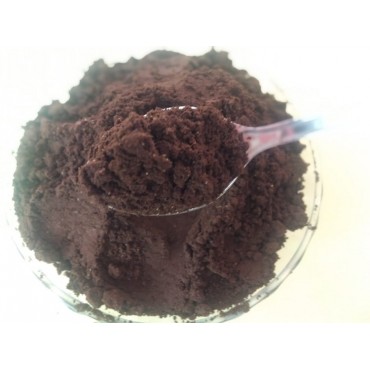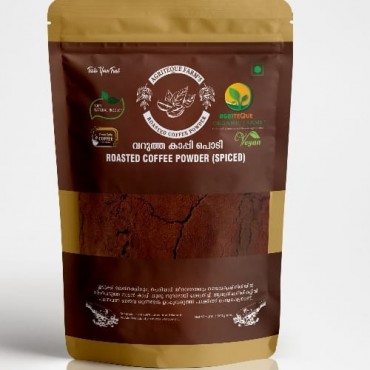Agriteque Roasted Organic Filter Coffee Powder-100gm
₹68
- Brand: Agriteque Organic Farms
- Product Code: Agriteque Roasted Organic Filter Coffee Powder-100gm
- Availability: In Stock
- Ex Tax: ₹65
Filter coffee holds a special place in Indian cuisine, particularly in South India, where it is more than just a beverage—it's a cultural symbol. The significance of filter coffee in Indian cuisine can be explored through its history, preparation methods, and its role in daily life and social rituals.
Historical Context
Filter coffee, or "kaapi" as it is locally known, was introduced to India in the 17th century by Baba Budan, a Sufi saint who smuggled coffee beans from Yemen to India. The coffee plant thrived in the hills of Karnataka, and over time, South India became a major hub for coffee cultivation. The Indian Coffee House chain, established in the mid-20th century, further popularized coffee consumption across the country.
Preparation and Distinctiveness
The traditional South Indian filter coffee is made using a metal coffee filter. The preparation involves a two-part process:
- Brewing: Coffee powder is placed in the upper compartment of the filter, hot water is poured over it, and the decoction (strong coffee) slowly drips into the lower compartment.
- Mixing: The decoction is then mixed with hot milk and sugar in a specific ratio to achieve the desired strength and flavor.
This method of preparation gives filter coffee its unique taste and aroma, distinguishing it from other types of coffee.
Cultural and Social Significance
- Daily Ritual: In many South Indian households, the day starts with a cup of freshly brewed filter coffee. It is an integral part of the morning routine, symbolizing the beginning of the day.
- Hospitality: Serving filter coffee to guests is a mark of hospitality and respect. It is customary to offer a steaming cup of coffee to visitors, which fosters social bonds.
- Café Culture: Coffee houses and small eateries, known as "coffee clubs" or "filter coffee joints," are popular social hubs where people gather to discuss politics, business, and community matters over a cup of coffee.
- Festivals and Celebrations: During festivals and special occasions, filter coffee is often a staple, enhancing the festive atmosphere.
Economic Impact
The coffee industry in South India significantly contributes to the local economy. Regions like Coorg, Chikmagalur, and Wayanad are well-known for their coffee plantations, which support the livelihood of thousands of farmers and workers.
Global Recognition
Indian filter coffee has gained international recognition for its distinctive flavor. Specialty coffee shops around the world now offer South Indian filter coffee, introducing global audiences to this quintessential Indian beverage.


